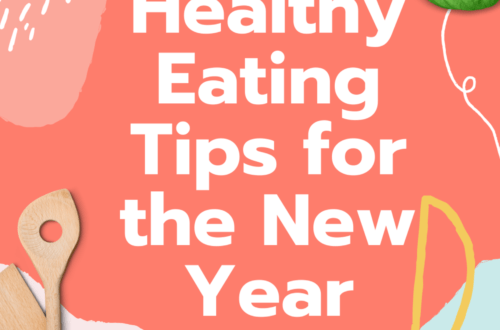
The 10 Principles of Intuitive Eating
Intuitive Eating, written by Registered Dietitians Evelyn Tribole and Elyse Resch, is a book written to be a tool and a guideline to help people improve their relationship with their bodies and with food as well as teach people on how to nurture their bodies. The book is broken down by 10 key principles.
I have outlined the principles below from this groundbreaking book. As someone who has struggled with an eating disorder in the past, this book and the principles truly changed my life.
Intuitive Eating #1
Reject the Diet Mentality
The first principle in Intuitive Eating recommends that you throw out your diet books and magazine articles that offer you the false hope of losing weight quickly and easily and to get MAD about the lies you have been fed that make you feel like a failure every time you try a diet and fail.
Many of my clients have dieted for years and finally hit diet-rock-bottom where nothing works anymore and yet they feel like they can’t stop dieting. Dieting can be a coping method and the thought of not dieting can be scary. The problem with dieting is that it can lead to cravings and a reduced self-control, which can lead to a loss of control and overeating which then can lead to weight gain in the long term.
The alternative is to make peace with food and diets and to build a healthy relationship with food and our bodies.
Tips for rejecting the diet mentality:
- Recognize and acknowledge the damage that dieting cause. Research shows chronic dieting slows down our metabolism, increases binges and cravings, increases risk of premature death and heart disease, causes our satiety cues to break down, and causes our body shape to change. Dieting is linked to eating disorders, increased stress, and loss of confidence and self-trust in ourselves
- You cannot “will” your way to weight loss just like you can’t will your way out of high blood pressure. Will power implies that we counter our natural desires and replace desire with rules. Dieting rules have to permanently leave our lives in order for peace to happen. With intuitive eating, it is a learning process and there are no failures; only learning experiences.
- Get rid of dieting tools. This includes scales (which is the ruiner of people’s days everywhere). There are many things that influence weight including water retention and muscle mass. Don’t let the scale dictate if you are being healthy or not.
Intuitive Eating #2
Honor Your Hunger
I often hear from people that skip meals frequently that they do not feel hungry during the day. However, when they finally eat, this powerful, biological drive to eat takes over and they go very quickly from starving to “so full they are sick”. When this biological drive to eat takes over, all of the good intentions one might have about food choices will likely go out the door. When our blood sugars get low, our body knows that the quickest and easiest absorbable foods are the best way to bring blood sugar back up (also caused by an increase in the hormone Neuropeptide Y).
When we diet, our bodies starve. You do not have to cut a very large percentage of calories out before you have psychological and biological mechanisms kick in to correct the deficit. Typically on a diet, metabolisms decrease, we obsess more about food, and irritability and/or depression increases. After dieting, it may take up to 5 months to normalize eating as found in Ancel Key’s starvation study.
After years of self-inflicted starvation myself, I found that I had a lot of weird food and eating behaviors that I had to unlearn. One that has been hard is my intense fear of people (or even my dog) around me going hungry. I keep food everywhere because the fear of my kids going hungry on my watch is abhorrent to me. I am working on this because I want my kids to have a healthy relationship with food.
When we stop listening to our body’s natural hunger cues, we replace biological needs with diet rules. Is it time to eat? Do I deserve it? Did I burn enough calories today? What am I eating later? When we ignore natural hunger we can lose our hunger cues and overeat in the long run.
Goal: honor your hunger and eat when you are biologically hungry and stop when you are full, as discussed earlier. If you have been or are a chronic dieter, this might take some time to heal or relearn and it may take some help from a professional to set up healthy meal patterns.
Intuitive Eating #3
Make Peace with Food
When we make foods “forbidden” or “bad” and cut them from our life, it leads to deprivation and intense cravings. We put these foods on a pedestal in our minds and have to constantly tell ourselves that “I can’t have that”. The longer we leave food on that pedestal, the more appealing it becomes. When we finally cave in, we will typically eat larger quantities of this food than we would have eaten before because it is now special. This “I’m never going to eat it again” feeling leads to binging and intense feelings of guilt. Sound familiar? Chapter 7 of the Intuitive Eating talks about the psychological and biological mechanisms of deprivation and that “psychological forces wreak havoc with your peace of mind, triggering cravings, obsessive thoughts, and even compulsive behavior.”
When we have food rules instead of listening to our own bodies, it is common to lose control and have “screw it” moments when we break our own rules. When this happens, overeating will take place. Eat a forbidden food? Better make it worth it! Exceed your calories for the day? Screw it, overeat and start over tomorrow.
Having unconditional permission to eat is key to stopping the food fight and healing your relationship with your body and food. Stop labeling foods as good or bad. Know that you deserve to eat whenever and whatever you really want. And, you can eat without having to compensate (i.e burn off or restrict the next day). This process can take time and can be terrifying. But making peace with food means that all foods have to be allowed so that a piece of cake feels the same way emotionally as a salad does. When you know that you can eat something whenever you want, your cravings for it will start to disappear. This is also known as food habituation and it is when you eat foods over and over again until it loses its novelty.
Some common concerns I hear when I start to discuss how all foods fit is that “I won’t stop eating once I start,” “I won’t make good food choices if I can eat anything,” and “I don’t trust myself”. If you feel this way, know that you are not alone. We work through these feelings together in my office.
If you are ready to start this process, you can start by making a list of forbidden foods and enjoying these foods one by one until no foods are left on your list. Try not to be too hungry before eating, eat slowly and mindfully, and check in with yourself during and after to see how much you really enjoyed the food. This process can be done with the help of your support team.
Intuitive Eating #4
Challenge the Food Police
The fourth principle is about saying a loud no to your internal and external food police. Food is neither good or bad and you are not good or bad for eating it. Guilt should not accompany eating. In my practice, we try to take out all of the morality in eating and bring food back to its intended purpose: to nourish your body and provide pleasure.
Several months ago, I was ordering a breakfast burrito at the hospital café. Ordering a breakfast burrito is my favorite part of working a weekend hospital shift. As I ordered it, the cook stated “I have seen you on tv! How can you teach people about healthy eating and still eat a burrito?!” Because I have been challenging the food police in my head for 15+ years, I was able to calmly respond that A.) the breakfast burrito is delicious, B.) It can be a part of a healthy eating pattern, and C.) It’s really none of his business what I choose to eat. My response was not only appropriate, it was empowering. Food thoughts and rules aren’t something that we are born with. They are learned over a lifetime of experiences. When our rules become restrictive and destructive, working with a professional can be helpful to deconstruct these rules and support intuitive eating. I had a patient tell her mom this week “my stomach is telling me I am hungry”. This was a huge win for us since this means she is listening to her own body cues rather than dieting rules.
Notice and challenge your dieting self-talk and challenge the underlying distorted beliefs. No, the brownie that you ate will not make you gain weight and does not make you a bad person. Enjoy every bite of that brownie and derive pleasure and satisfaction from it. When you are done eating, move on without the guilt. Over time, we can work through black and white thinking, absolute thinking, and catastrophic thinking together. We challenge these thoughts and focus on continued change and learning leads to enrichment and life enjoyment. As we do, you start to challenge your own food police, start by paying attention to your own self talk and challenging negative thought patterns.
Intuitive Eating #5
Feel Your Fullness
The 5th principle of Intuitive Eating is to feel your fullness. Chronic dieting can lead to a feeling of entitlement when the opportunity to eat arises. If you have been eating “good” all day, you may feel like you deserve to indulge at night. Over time, we eat foods based on outside factors rather than listening to internal cues. When was the last time you ate past fullness because you felt like you deserved it? Plus, chronic dieting makes our bodies feel like we are in a famine and encourages the “feast or famine” mentality. So, how do you stop eating when full? I encourage that you practice eating mindfully and being fully present and conscious when eating. Check in with yourself often and mentally note how you are physically feeling. This may be new for you and even uncomfortable. When you start to have sensations of your stomach feeling full or you start to feel satisfied, this can be a great time to explore stopping. Sometimes, even the absence of hunger or fullness is a good stopping place. Tell yourself that food is abundant and plentiful and that you can eat again whenever you want or feel hungry again. It helps if you practice this with minimal distractions and eat satisfying and filling foods.
Intuitive Eating #5
Feel Your Fullness
The 5th principle of Intuitive Eating is to feel your fullness. Chronic dieting can lead to a feeling of entitlement when the opportunity to eat arises. If you have been eating “good” all day, you may feel like you deserve to indulge at night. Over time, we eat foods based on outside factors rather than listening to internal cues. When was the last time you ate past fullness because you felt like you deserved it? Plus, chronic dieting makes our bodies feel like we are in a famine and encourages the “feast or famine” mentality. So, how do you stop eating when full? I encourage that you practice eating mindfully and being fully present and conscious when eating. Check in with yourself often and mentally note how you are physically feeling. This may be new for you and even uncomfortable. When you start to have sensations of your stomach feeling full or you start to feel satisfied, this can be a great time to explore stopping. Sometimes, even the absence of hunger or fullness is a good stopping place. Tell yourself that food is abundant and plentiful and that you can eat again whenever you want or feel hungry again. It helps if you practice this with minimal distractions and eat satisfying and filling foods.
Intuitive Eating #6
Discover the Satisfaction Factor
Does your food and eating pattern bring satisfaction and pleasure into your life? We need satisfaction in our lives to be happy. Often, when we are unhappy in our lives, we try to use food to cope or bring happiness. Although food can be pleasurable and satisfying, it cannot meet our needs for happiness if other areas of our life are not meeting our needs. A big part of the intuitive eating process is to soothe and comfort emotional needs without food.
Don’t be afraid to derive pleasure and enjoy your food. I find that when we do, we enjoy the food more and actually end up eating less because we are able to identify and stop eating when full. If the thought of enjoying foods fully is intimidating to you, these helpful tips can be a good place to start.
- Ask yourself what you really want to eat (not what you should eat)
- Eat that food
- Try to experience food with all senses like sensations to your taste buds, texture, aroma, appearance,and temperature.
- Think about what you really enjoy eating and what appeals to you as an individual.
- Savor and enjoy your food. Make eating a pleasurable experience by minimizing distractions and making your eating space comfortable.
- Eat slowly, sensually, and savor (three S’s)
- Eat when you are moderately hungry. When we wait until we are starving, it is hard to slow down or taste anything.
- Don’t settle. If you try something that you thought you would like but don’t, toss it out. You are not obligated to eat foods you don’t enjoy or want to eat (except under certain circumstances).
- Check in and see how the experience went for you.
- Remember that you don’t have to be perfect. Not every eating experience needs to or even can be perfectly mindful.
Intuitive Eating #7
Cope with Your Emotions without Using Food
If you could no longer use food to cope with your emotions, what would you do? If food were off the table, so to say, what other coping tools would you use? We all have emotions and feelings that need to be soothed. Food is a common coping tool because food is plentiful, it soothes and distracts for the moment, and can be used to numb. But if you have ever used food for coping, you know that the effects are short lived and are often accompanied with feelings of remorse or guilt.
If you are like most people, food has been used to cope for most of your life. Identifying the “why” you are eating can be a very helpful exercise when working on the intuitive eating process. Are you eating because you are hungry or because you are seeking pleasure, comfort, , punishing yourself, bored, procrastinating, rewarding yourself, trying to add excitement with food, soothing, frustrated, angry, stressed, anxious, depressed, wanting to feel connected to others, or letting off steam?
If you want to eat to soothe an emotion, ask yourself what you really need in that moment. In the book 50 ways to soothe yourself without food by Susan Albers PSY.D, she talks about using mindfulness, meditation, changing your thoughts, relaxation strategies, and distraction strategies to use rather than using food. It is amazing the alternatives you can find if you plan ahead. I have my clients make a list in my office that they can refer to later on. When you engage in these alternative soothing techniques, you start to actually feel better, rather than continuing to cover up your emotions.
Intuitive Eating #8
Respect Your Body
Part of respecting our bodies means accepting our bodies as they are. We can’t will ourselves to change our foot size. Similarly, our weight and body shapes are often determined strongly by genetics and are not changeable past a certain degree. If you find yourself hating your body, please take a moment to ask yourself if this has done any good for you in the past? Did it make you skinnier? Happier? A better person?
We get bombarded every day with unrealistic expectations of beauty, fitness, and health. What good has come from all of these unrealistic expectations other than further body dissatisfaction and an increase in eating disorders? Our societal/cultural focus on health and fitness has backfired and led to increased obesity, poor body image, and worse health outcomes.
If you have been hating your body for years, making a change can be difficult and it may even seem impossible. You have to respect yourself as you are (even if you can’t fully accept it yet) and show your body gratitude and kindness before any long-term changes can be truly effective. It also means living your best life NOW, not 10 pounds from now. Respecting your body means treating it well and meeting your basic needs. When you live your life fully and take great care of your body, you will get to your natural weight. With clients, we often have to get to a point of respect with their bodies before we can work on acceptance and love.
I recently taught a lecture on Health at Every Size (HAES) and the takeaways are that:
- Diets not only do not work but cause more harm than good
- Health comes from self-care including a balanced diet, regular exercise, sleep, stress management, etc.
- Good health isn’t necessarily tied to weight and overweight people are often more healthy (statistically) than underweight or normal weight people.
Some tips for respecting your body:
- Wear comfortable and flattering clothes for your body type.
- Throw out “someday” clothes
- Quit body checking yourself in the mirror
- Stop body bashing yourself or others
- Respect that all people come in different shapes and sizes and that this is a good thing! We need to make progress in accepting body diversity and showing kindness and inclusivity to everyone.
- Be realistic with what is healthy and appropriate for you long term.
- Be kind to your body and pamper it when you can. Your body does a lot for you!
- Accept your natural body weight
- Say goodbye to your body fantasies if it isn’t realistic
Intuitive Eating #9
Exercise-Feel the Difference
Do you ever view exercise as a chore, punishment, or as a way to burn calories then you may not feel like exercising? With intuitive eating, we use exercise as a way to increase activity and to feel good, rather than a way to burn calories. I find with my clients that when they do this, exercise is self-rewarding because they feel so good after! Chronic dieting and exercise can lead to burn out. It’s no fun to work out when you are completely exhausted and calorie deprived. When we are nourishing our body with food, we will also want to start nourishing our body with movement. And it doesn’t have to be all or nothing! Any kind of movement counts. I count walking my dog, dancing with my kids, or “power cleaning” towards my daily movement goals. The point is to move and to have fun doing it! Remember that any kind of physical activity and in any amount of time counts. No amount of time is not worth it. Only have 5 minutes? Try going on a quick walk to improve your mental energy and focus for the next few hours.
I don’t usually start my clients on exercise right away until they feel good about their food and want to start exercising. Even when this happens, there are a lot of barriers to make exercise a normal part of every day. We work through those barriers and problem solve together. In the end, the goal is to work up towards 150-300 minutes of moderate to high-intensity exercise per week.
Exercise is shown to decrease stress, improve mental energy, improve lean body mass and bone density, decrease blood pressure, reduce risk for chronic diseases, increase metabolism, improve hunger and fullness cues, boost our mood, and keep our brain healthy long term. If those aren’t good reasons, I don’t know what is!
Intuitive Eating #10
Honor Your Health with Gentle Nutrition
Lastly, but not least important, is nourishing your body with foods that make you feel good and honor your health. After my clients have worked through the intuitive eating process, they start to eat healthier foods because they want to, not because someone is telling them to. They have become in tune with their body and notice that they feel good when they eat foods that are nourishing for them. These sometimes need to include fun foods! It takes a balance of nutrient-dense foods and fun foods in our long-term eating patterns to provide us with the mental and physical nourishment necessary for long term health. I encourage my clients to slooooowww way down when they eat, savor their meals, savor fun foods, and enjoy every bite of the foods they choose to eat. Try to enjoy as many foods as you can in their whole forms (fruits, vegetables, whole grains, etc) and get a variety of different food groups every day. Over time, we work on elevating the quality of our food choices and decreasing processed foods as well as making sure we are getting enough proteins, fats, and water.
If you enjoyed this article on Intuitive Eating and want to read the book, you can find it on Amazon at https://amzn.to/2QQWA4A. You can also find the IE workbook here: https://amzn.to/36u7rpD. The book and workbook are powerful tools on their own and are life changers if you have struggled with food or disordered eating. If you want to learn more about how you can apply IE in your own life, I would also recommend working with a nutrition therapist. I see people both in office and virtually.
Stay tuned for future IE classes!!


You May Also Like

Get Smart About Sugar
April 8, 2018
Child Nutrition
March 28, 2020
